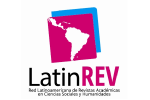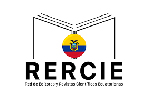Los acuerdos recíprocos del agua como herramienta para la participación ciudadana y el desarrollo local: caso de estudio en la cuenca del Río Tabacay, sur del Ecuador.
DOI:
https://doi.org/10.18537/iuris.18.01.09Keywords:
Right to water, Reciprocal Water Agreements, participation rights, sustainable development.Abstract
Despite increasing efforts to care for the environment, the watersheds continue to face serious problems such as the advance of the agricultural and livestock frontier. In this interest to curb said problem, the Reciprocal Water Agreements (ARAs) were born as an alternative to traditional economic instruments for environmental protection, promoting the care and protection of environmental services and the participation of citizens in the proper management of water resources. The present work tries to analyze the participation of the inhabitants of the upper and lower basin, in the design, formulation and execution phase of this instrument from the year 2013 - 2019, carried out in the micro-basin of the Tabacay River, southern Ecuador. The results obtained showed that the right to water is an independent right and at the same time interdependent with other human rights, so its management should revolve around the active participation of the inhabitants of the lower and upper basin in search of local development, that achieves a sustainable territorial development.
Downloads
References
Asquith, N. (2011). Reciprocal Agreements for Water - An environmental management revolution in the Santa Cruz valleys. ReVista - Harvard Review of Latin America, XI(No. 1), 58–60.
Asquith, N. M., Vargas, M. T., & Wunder, S. (2008). Selling two environmental services : In-kind payments for bird habitat and watershed protection in Los Negros, Bolivia. Ecological Economics, 5, 675–684. https://doi.org/10.1016/j.ecolecon.2007.12.014
Célleri, R., & Feyen, J. (n.d.). The Hydrology of Tropical Andean Ecosystems: Importance, Knowledge Status, and Perspectives. https://doi.org/10.1659/mrd.00007
Consejo de Derechos Humanos ONU. (2010). Resolución 15/9. Los derechos humanos y el acceso al agua potable y el saneamiento. 16636, 4. https://documents-dds-ny.un.org/doc/UNDOC/GEN/G10/166/36/PDF/G1016636.pdf?OpenElement
Constitución. (2008). República del Ecuador. Quito: Registro Oficial No. 449 de 20 de octubre de 2008.
EMAPAL, CG PAUTE, & Universidad de Cuenca. (2004). Plan de Manejo de la Microcuenca del Río Tabacay.
Engel, S., Pagiola, S., & Wunder, S. (2008). Designing payments for environmental services in theory and practice: An overview of the issues. Ecological Economics, 65(4), 663–674. https://doi.org/10.1016/j.ecolecon.2008.03.011
Greiner, R., & Stanley, O. (2013). More than money for conservation: Exploring social co-benefits from PES schemes. Land Use Policy, 31, 4–10. https://doi.org/10.1016/j.landusepol.2011.11.012
Hayes, T., Murtinho, F., & Wolff, H. (2017). The Impact of Payments for Environmental Services on Communal Lands: An Analysis of the Factors Driving Household Land-Use Behavior in Ecuador. World Development, 93, 427–446. https://doi.org/10.1016/j.worlddev.2017.01.003
Hofstede, R., Calles, J., López, V., Polanco, R., Torres, F., & Ulloa, J., & Cerra, M. (2014). Los páramos Andinos ¿Qué Sabemos? Los Páramos Andinos ¿Qué sabemos? Estado de conocimiento sobre el impacto del cambio climático en el ecosistema páramo. In UICN, Quito, Ecuador. UICN.
JONES, K. W., HOLLAND, M. B., NAUGHTON-TREVES, L., MORALES, M., SUAREZ, L., & KEENAN, K. (2016). Forest conservation incentives and deforestation in the Ecuadorian Amazon. Environmental Conservation, 1–10. https://doi.org/10.1017/S0376892916000308
Kerr, J. M., Vardhan, M., & Jindal, R. (2014). Incentives, conditionality and collective action in payment for environmental services. International Journal of the Commons, 8(2), 595–616. https://doi.org/10.18352/ijc.438
Murtinho, F., & Hayes, T. (2017). Communal Participation in Payment for Environmental Services (PES): Unpacking the Collective Decision to Enroll. Environmental Management, 59(6), 939–955. https://doi.org/10.1007/s00267-017-0838-z
Naciones Unidas, (2010). Resolución 64/292 de 3 de agosto de 2010. El derecho humano al agua y al saneamiento. In Asamblea General de las Naciones Unidas. http://www.un.org/ga/search/view_doc.asp?symbol=A/RES/64/292&Lang=S
Naciones Unidas, (2010). Resolución 15/9 de 6 de octubre de 2010
NIKOLAKIS, W., & INNES, J. L. (2017). Evaluating incentive-based programs to support forest ecosystem services. Environmental Conservation, 44(01), 1–4. https://doi.org/10.1017/S0376892917000017
Pacto Internacional de Derechos Económicos Sociales y Culturales en el Registro Oficial No. 101 de 24 de Enero 1969
Plan Nacional de Desarrollo Toda una Vida 2017-2021
Rodríguez-Robayo, K. J., Avila-Foucat, V. S., & Maldonado, J. H. (2016). Indigenous communities’ perception regarding payments for environmental services programme in Oaxaca Mexico. Ecosystem Services, 17, 163–171. https://doi.org/10.1016/j.ecoser.2015.11.013
Stoneham, G., Chaudhri, V., Ha, A., & Strappazzon, L. (2002). Auctions for conservation contracts: an empirical examination of Victoria's BushTender trial. Australian Journal of Agricultural and Resource Economics, 47, 477–500. https://doi.org/10.1111/j.1467-8489.2003.t01-1-00224.x
Suich, H., Howe, C., & Mace, G. (2015). Ecosystem services and poverty alleviation: A review of the empirical links. Ecosystem Services, 12, 137–147. https://doi.org/10.1016/j.ecoser.2015.02.005
Valdes de Hoyos, E. I. P., & Uribe Arzate, E. (2016). Cuestiones constitucionales : revista mexicana de derecho constitucional. Cuestiones Constitucionales, 34, 3–25. http://www.scielo.org.mx/scielo.php?script=sci_arttext&pid=S1405-91932016000100003&lng=es&nrm=iso&tlng=es






